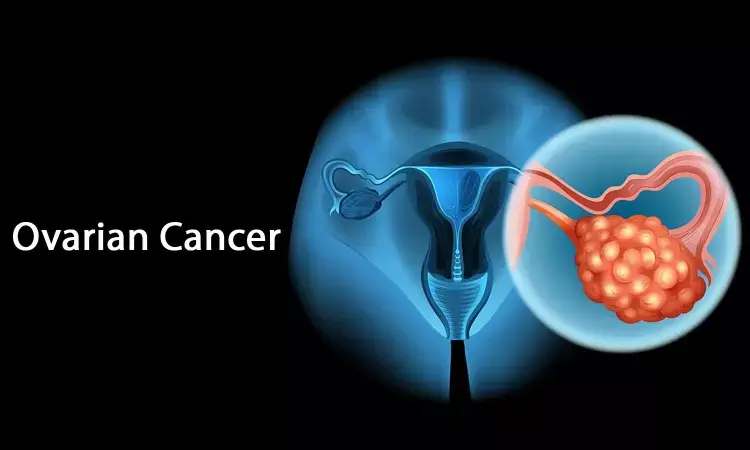- Home
- Medical news & Guidelines
- Anesthesiology
- Cardiology and CTVS
- Critical Care
- Dentistry
- Dermatology
- Diabetes and Endocrinology
- ENT
- Gastroenterology
- Medicine
- Nephrology
- Neurology
- Obstretics-Gynaecology
- Oncology
- Ophthalmology
- Orthopaedics
- Pediatrics-Neonatology
- Psychiatry
- Pulmonology
- Radiology
- Surgery
- Urology
- Laboratory Medicine
- Diet
- Nursing
- Paramedical
- Physiotherapy
- Health news
- Fact Check
- Bone Health Fact Check
- Brain Health Fact Check
- Cancer Related Fact Check
- Child Care Fact Check
- Dental and oral health fact check
- Diabetes and metabolic health fact check
- Diet and Nutrition Fact Check
- Eye and ENT Care Fact Check
- Fitness fact check
- Gut health fact check
- Heart health fact check
- Kidney health fact check
- Medical education fact check
- Men's health fact check
- Respiratory fact check
- Skin and hair care fact check
- Vaccine and Immunization fact check
- Women's health fact check
- AYUSH
- State News
- Andaman and Nicobar Islands
- Andhra Pradesh
- Arunachal Pradesh
- Assam
- Bihar
- Chandigarh
- Chattisgarh
- Dadra and Nagar Haveli
- Daman and Diu
- Delhi
- Goa
- Gujarat
- Haryana
- Himachal Pradesh
- Jammu & Kashmir
- Jharkhand
- Karnataka
- Kerala
- Ladakh
- Lakshadweep
- Madhya Pradesh
- Maharashtra
- Manipur
- Meghalaya
- Mizoram
- Nagaland
- Odisha
- Puducherry
- Punjab
- Rajasthan
- Sikkim
- Tamil Nadu
- Telangana
- Tripura
- Uttar Pradesh
- Uttrakhand
- West Bengal
- Medical Education
- Industry
Rapid test for detection of ovarian cancer developed

Researchers have found that Aberrant sugar structures can be used in early cancer diagnostics along with CA125 detection.
The CA125 antigen, a plasma membrane glycoprotein found in the tissues of the female reproductive tract, is commonly used for the detection of ovarian cancer but works poorly on its own in identifying early stage cancers. The cancer specificity can be improved significantly when CA125 detection is combined with targeting aberrant sugar structures in the tumour.
The goal of the research group led by Professor Kim Pettersson at the University of Turku, Finland, is to develop novel tests that use the detection of modified sugar structures from the cancer tissue. The recently published article describes how the research group developed this rapid and sensitive point-of-care diagnostic test that can detect ovarian cancer from the patient's blood sample.
With the easy-to-run and rapid test developed in the study, ovarian cancer can be more accurately detected from a blood sample in 30 minutes. The technologies of the Biotechnology unit at the Department of Biochemistry, as well as their expertise in label technology and rapid tests, were widely used in this study.
"When compared with the conventional CA125 diagnostics, the sensitivity of the new test was 4.5 times higher in detecting ovarian cancer," says Doctoral Candidate Sherif Bayoumy, the first author of the study.
The aim is to expand further on these promising results to cover a larger group of patients and other cancers. The goal is to develop rapid tests for clinical use to facilitate to proceed to further examinations and treatment options.
"The received results are extremely promising for early cancer diagnostics. We are currently studying the functionality of similar approaches in other cancers. Detecting the disease as early as possible is extremely important when it comes to, for example, pancreatic cancer," describes Professor Kim Pettersson.
https://www.nature.com/articles/s42003-020-01191-x
Hina Zahid Joined Medical Dialogue in 2017 with a passion to work as a Reporter. She coordinates with various national and international journals and association and covers all the stories related to Medical guidelines, Medical Journals, rare medical surgeries as well as all the updates in the medical field. Email: editorial@medicaldialogues.in. Contact no. 011-43720751
Dr Kamal Kant Kohli-MBBS, DTCD- a chest specialist with more than 30 years of practice and a flair for writing clinical articles, Dr Kamal Kant Kohli joined Medical Dialogues as a Chief Editor of Medical News. Besides writing articles, as an editor, he proofreads and verifies all the medical content published on Medical Dialogues including those coming from journals, studies,medical conferences,guidelines etc. Email: drkohli@medicaldialogues.in. Contact no. 011-43720751


